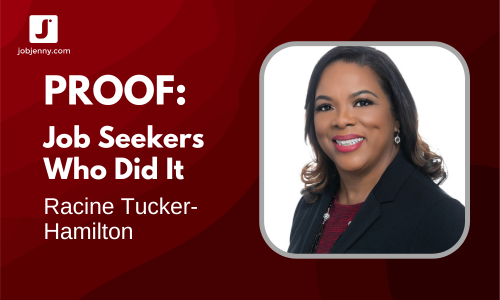4 Resume Updates You Need to Make When Shifting Your Career
For anyone making a career pivot, it's essential to shift your professional brand so that your new target audience will understand how and why you make sense for the types of roles you're now pursuing.
Too often, people assume that a savvy resume reviewer -- be that an HR person, hiring manager or other decision maker -- is going to just deduce this on her own; that a magical lightbulb is going to go off in her head that connects all the necessary dots in an instant.
Unfortunately, it doesn’t work this way.
It's not that person's job to make you make perfect sense for any given opportunity; it's yours.
As you make a career pivot, you are going to be competing with people whose career paths are more linear and logical than yours. Thus, you've got to do everything you can to highlight how your current and prior experience, education and volunteer activities make you a serious contender.
The most obvious place to start when shifting your professional brand is your resume.
Here are 4 very doable updates you need to make as you embark on a career pivot:
Spell out what you're doing, and why it makes sense -- right at the top of your resume
You've got seconds to spell out to a resume reviewer how and why you're a fit for the types of roles you're pursuing. Thus, you need to create a Summary section right at the top of page one -- a quick series of bullet points that spells out who you are as a professional, with the target industry/role in mind. Showcase the strengths that you possess -- the one's that you know matter for this industry.
Better yet, explain exactly what you're up to in one quick statement. For example, say you are a mechanical engineer attempting to shift into accounting. You've just finished your accounting degree and you've worked part-time as a bookkeeper for your wife's photography business for three years. Consider a statement that goes something like this:
-- Recent accounting graduate with 3+ years of bookkeeping and general accounting experience. Specifically interested in applying talents as a full-time financial analyst, credit analyst or general accountant.
Now, even when the reviewer sees your X years of experience as a mechanical engineer, they "get" what's going on here, and why you're applying for financial analyst roles.Add (or edit) a Key Skills section that includes skills specific to your target industry/role
Right underneath your Career Summary (and before you launch into Professional Experience) section, add a Key Skills (or, Areas of Expertise) section. This section is going to basically serve as a list of the "stuff" you know how to do. Study a few job descriptions in your target industry -- Do you see the "stuff" that is called for over and over again? Assuming you have these skills, be sure and add them in this section. To whatever extent you can make yourself "look like" that new type of role you're pursuing, you must do so.Pull the most relevant stuff up near the top
Let's go back to our mechanical engineer who wants to be an accountant. Assuming that most of his professional experience to date is engineering roles, he's going to want to pull that part-time bookkeeping work he's been doing right to the top of the Experience section. He may even want to create two Experience sections, one called "Accounting / Bookkeeping Experience" and one called "Additional Experience". Also, since he's a recent Accounting graduate, I'd encourage him to pull the Education section near the top of the resume as well, so that the reviewer can see it immediately.Be sure and mention any related volunteer or side-project work
Assuming you don't have much "official" experience in the role to which you're trying to pivot, you'll serve yourself well to showcase any relevant volunteer work you've done, or side projects at your current or prior roles. What do I mean by side projects? Say you're working as an administrative assistant at a university and your goal is to become a recruiter. As it happens, you've been doing informal recruiting work to support graduating seniors in your university's department for two years. Even though it's not your official job, you absolutely should showcase this as you outline your work and accomplishments for that employer.
Take every opportunity to point out ways in which you're a great fit and/or have transferable skills. Make it "smack in the forehead obvious" to these reviewers what you're doing because, again, they're not going to make the correlation or connect the proverbial dots for you.
Are you gearing up for a career change?
We’ve got just the thing for you, and it’s $15 off — Check out our Ridiculously Awesome Career Pivot Kit, a no-fuss, roll-up-your-sleeves guide for anyone who refuses to believe a job should simply be survivable. We’ll take you step-by-step through our proven process for defining, strategizing and landing a job you love. It’s an e-book, so you can download and get started right now for just $24 (reg. $39).
Use Promo Code: PIVOTTIME at checkout
“I enjoyed getting some real advice on how to pull off the career change. I have succeeded!!!! Amazing job, amazing company, and finally, I’m out of the field I’ve been trying to get out of for four years. After talking to you I got out in 6 weeks! Thank you so so much!!!
”











